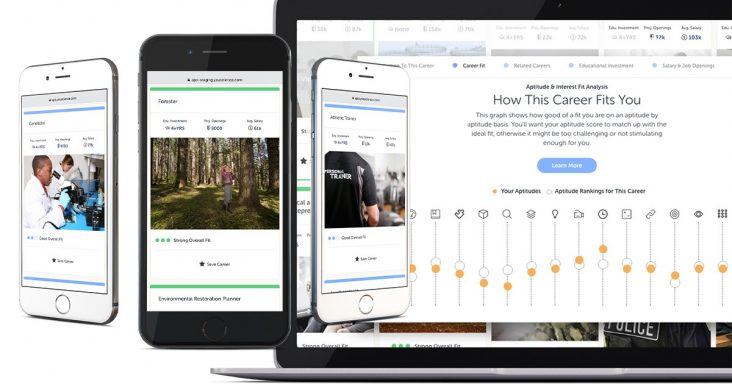Report: Students have more ability than interest for high-demand jobs
by July 9, 2019 2:03 pm 1,048 views

Arkansas students have greater natural talent than interest for high-demand jobs in the state, and those who only base their career choice on interest might be led away from jobs that have a greater economic impact, according to results from a new aptitude report.
Nashville-based technology company YouScience released the report after surveying 7,060 Arkansas students from 20 high schools, and it breaks down the students’ interests and aptitudes by industry and gender.
Armando Garza, senior vice president of sales and marketing for YouScience, explained surveys that only consider interest might lead people into careers for which they have no ability. An interest-only survey recommended 76% of students to careers in arts and entertainment, education, social work and life sciences, according to the report. But the aptitude-based survey recommended only 28% of the students toward those careers.
However, the aptitude-based survey recommended 36% of the students to high-demand careers in architecture, engineering, computer technology, construction, transportation and logistics, according to the YouScience report. The interest-only survey didn’t recommend any students to the previous careers.
Some of the top jobs Arkansas students have a natural talent for include manufacturing, information technology, healthcare and construction, Garza said. He noted men work in 80% of information technology careers, and those who recruit IT talent typically consider white men for job openings. The percentage of the population who are white men is expected to shrink to about 20% over the next five or six years, leading to a declining amount of talent from which to draw, he said.
However, young women have the natural talent for IT jobs, while young men have an aptitude for healthcare and nursing jobs, Garza said. The report showed 2,000 female students had a high aptitude for computers, architecture and engineering jobs, while 1,906 male students had a high aptitude for the jobs. Also, 2,728 male students had a high aptitude for healthcare jobs, while 2,638 female students had a high aptitude for those jobs.
“There’s a larger, more bountiful, plentiful talent pool that exists right in the backyard of Northwest Arkansas businesses,” Garza said. “They have the opportunity to find more talent for these opportunities that they have versus saying, ‘Hey, we’ve got this talent crunch or this talent shortfall.’ So I think that’s the big ah-ha is we know that talent exists in the Arkansas schools. Being able to have this talent, these students in school understand that they have the ability and then connect them to employers so they can get exposure really starts to then grow that talent pipeline.”
When asked about attracting students to a career in which they don’t have an interest but an aptitude for, Garza said students must be made aware of their natural talents, and this is what the YouScience platform does. It shows the users they have talent in high-demand jobs, he said. After showing them this, they must be exposed to the opportunities, such as through technical training and work-study opportunities at school or through apprenticeships or internships.
“Interests change over time,” he said. “They’re a function of exposure. Whereas your aptitudes remain fairly stable.”
Students surveyed for the report completed psychometrically valid exercises or “brain games,” Garza said. YouScience can determine a student’s ability from the exercises, and the company created a proprietary matching algorithm, based on the O*Net Ability Profiler, to connect their abilities to a career. Users can access their profile for 10 years, and the company provides the profiles for free to schools and nonprofits.
YouScience also offers academic advising tools, and one tool can match students to career and technical education programs and allow schools to recruit students into them. It also can help technical schools recruit students from high schools and employers identify talent in their area.
This was the first report like this completed in Arkansas, and it’s expected to be completed annually, Garza said. Van Buren High School Freshman Academy has used the YouScience platform for the past three years. YouScience also helps adults looking to re-enter the workforce in Tennessee and hopes to offer the service in Arkansas.
